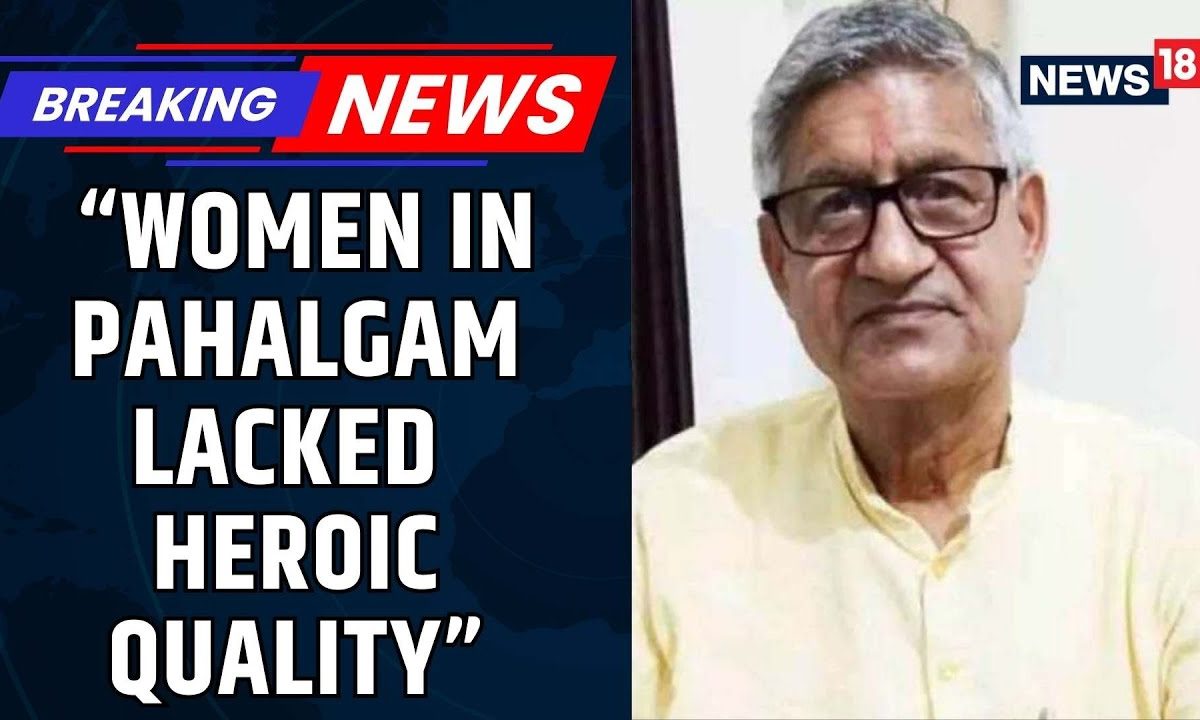

The aftermath of the deadly terrorist attack in Pahalgam, which claimed the lives of 25 tourists and a local ponywallah on April 22, continues to reverberate throughout India, sparking political rows and igniting debates about security, courage, and national responsibility. The picturesque Baisaran meadow, once a haven for travelers, became the site of unimaginable horror when five terrorists, reportedly affiliated with The Resistance Front, an offshoot of Lashkar-e-Taiba, targeted innocent civilians. The attack, which specifically targeted men, left an indelible scar on the nation's psyche, further strained relations between India and Pakistan, and now, has triggered a storm of controversy following insensitive remarks made by a Bharatiya Janata Party (BJP) Member of Parliament (MP).
Ram Chander Jangra, a BJP MP, ignited a firestorm of criticism with his remarks suggesting that the women who lost their husbands in the Pahalgam attack "lacked heroic qualities" and that the tourists should have fought back against the terrorists. Speaking at a symposium in Bhiwani, Haryana, Jangra stated that the women "did not have the spirit of warriors" and that the casualties could have been lower if the tourists had received Agniveer training, a military training program. He further added the women whose husbands were killed by the terrorists, “did not have the spirit of warriors and that's why these women fell victim to the bullets pleading for the lives of their husbands with folded hands".
Jangra's comments have been met with widespread condemnation from opposition parties and the public alike. Congress leaders have demanded his expulsion from the party, accusing him of disrespecting the victims of the attack and undermining the sacrifices of the armed forces. Congress President Mallikarjun Kharge criticized BJP leaders for attempting to outdo one another in disrespecting the victims and diminishing the sacrifices made by armed forces. Jairam Ramesh, Congress general secretary, alleged that BJP leaders are constantly insulting the Indian Army and the martyrs, exposing their petty and lowly mindset, and called Jangra's statement shameful and highly objectionable. Samajwadi Party chief Akhilesh Yadav also attacked the BJP, branding it a "swamp of anti-women mentality". Deepender Singh Hooda, a Congress MP, deemed Jangra's remarks "extremely despicable" and accused him of attacking the dignity of the women who lost their husbands in the terror attack.
Facing severe backlash, Jangra has since apologized for his remarks, claiming they were distorted to create political controversy. He stated that his intention was not to hurt anyone's sentiments and that he regretted if his words caused any distress. However, his apology has done little to quell the outrage, with many viewing his initial comments as insensitive and out of touch with the pain and trauma experienced by the victims and their families.
The Pahalgam attack has further strained the already tense relationship between India and Pakistan. India has accused Pakistan of supporting the militants behind the attack, a charge that Islamabad vehemently denies. In the aftermath of the attack, India launched what it called "Operation Sindoor," targeting alleged terrorist infrastructure inside Pakistan, leading to a series of retaliatory military maneuvers from both sides. These actions have raised concerns about regional stability and the potential for further escalation.
The attack has also had a devastating impact on the tourism sector in Pahalgam, with hotel occupancy rates plummeting and many tourist spots remaining deserted. The local economy, heavily reliant on tourism, has suffered a significant blow, leaving many families struggling to make ends meet.
As India grapples with the aftermath of the Pahalgam attack, the focus remains on bringing the perpetrators to justice, providing support to the victims and their families, and ensuring the safety and security of its citizens. However, the controversy surrounding Jangra's remarks serves as a stark reminder of the importance of sensitivity and responsible leadership in times of crisis.